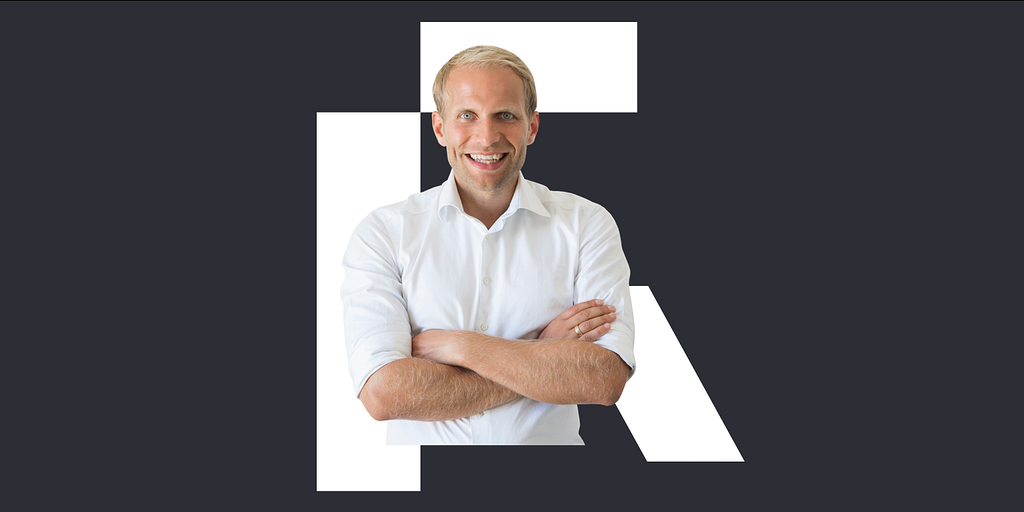Privacy settings
In order to be able to optimally design and improve the website, we use cookies. We divide these into technically necessary cookies and statistics cookies. More detailed information is available in our privacy policy.
14.10.2020 Fabian Roschig

Learn how to consistently turn ideas into commercial success.
While we tend to romanticize the idea of innovation as a sudden flash of brilliance, the reality is that successful, commercially viable innovation requires a methodical approach.

In today’s business world, most executives agree that innovation is essential for competitiveness, progress, and long-term success. For instance:
Innovation remains at the top of the business agenda. However, when you ask people what they mean by innovation, you’ll hear a range of answers, but rarely will you hear: “a process of developing solutions to unmet customer problems” or something equally systematic.
We often perceive innovation as a magical, one-time event — an extraordinary idea from a brilliant mind. But for established companies, which are structured to maintain consistency and control, relying on unpredictable sparks of genius is a contradiction. Stability, consistency, and control are the antithesis of random brilliance. So why treat innovation any differently from other business processes that are meticulously structured, optimized, and repeatable?
Instead of viewing innovation as a singular moment of inspiration, we should see it as a repeatable process. Innovation should be predictable, fact-based, and systematic — a process that delivers tangible results regularly, not by accident.
As Tony Ulwick, founder of the innovation consulting firm Strategyn, wisely noted:
“With an aversion to process and a strong belief that innovation is an art, there is little hope a company will ever consider adopting an effective innovation process.”
Sure, innovation can happen by accident. Some companies stumble into success through experimentation, failure, redesigns, and the occasional brilliance of a uniquely talented individual. But relying on such random occurrences is not efficient or strategic. It’s akin to betting the future of your company on a spin of the roulette wheel — a gamble no responsible executive would want to take.
Stay ahead in innovation! Sign up now for exclusive insights on breakthrough capabilities and proven strategies to de-risk your innovation process.
👉🏼📩 Join today and get all future posts delivered right to your inbox!
Successful innovation includes two key phases, both equally important:
As Emre Soyer puts it, “Works of brilliance come from great processes, not great ideas.” A structured process allows for creativity to flourish, but in a way that ensures tangible results.
Developing a highly productive innovation capability should be a strategic priority for any organization. This capability isn’t just about having great ideas — it’s about having a repeatable, scalable process that allows your company to consistently innovate and stay ahead in a rapidly changing market.
Innovation isn’t just about talent or luck. It’s a discipline, a process that, when properly executed, leads to sustainable growth and success. To rely solely on genius moments is to risk your organization’s future; to adopt a structured, systematic approach is to secure it.
If this article sparked some thoughts and you’re:
I can help you navigate this journey. Let’s work together to shape the future of your business. Get in touch with me here.
Curious to hear your challenges and ideas.
Book your free 30-minute call here
Stay ahead in innovation! Sign up now for exclusive insights on breakthrough capabilities and proven strategies to de-risk your innovation process.
👉🏼📩 Join today and get all future posts delivered right to your inbox!

Hi, my name is Fabian Roschig.
With a background that blends entrepreneurial experience and corporate innovation, I’ve had the opportunity to found and lead two startups, manage a corporate incubator, and support innovation initiatives across both SMEs and Fortune 500 companies.
I’m not a traditional consultant — I’m an entrepreneur and operator, 100% focused on execution. I bring a startup mindset to every project, ensuring that we’re not just talking about ideas but actually making them happen, often stepping in as interim project leader to guide teams directly.
My goal is to build lasting capabilities within your team, not dependencies. While I’m committed to being a long-term partner, I also aim to empower your teams to innovate independently.
I’m now focused on combining my business experience with advanced AI strategies to help businesses innovate more efficiently and stay ahead of the curve. Together, we’ll turn your ideas into practical, market-ready solutions that drive real business impact.
I’m excited to learn about your challenges and explore how I can support you — whether through workshops, consulting, interim leadership, or serving as a sounding board for your growth initiatives. I’d love to connect and get to know you better!
—
Originally published at http://fabianroschig.com
Commercially viable innovation is a systematic process, not (only) a spark of genius was originally published in Fabian Roschig — Innovation Advisory on Medium, where people are continuing the conversation by highlighting and responding to this story.